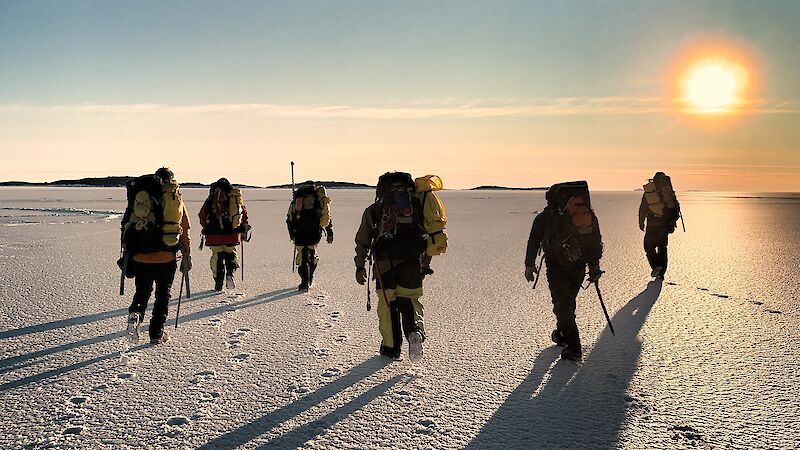The Antarctic environment is highly susceptible to the impacts of human activities, and as a general rule has much less natural ability to recover from disturbance than the Australian environment; consider this when undertaking activities in the field.
The collection and coordination of relevant information facilitates effective environmental management, science and support operations. To assist in this process, accurately record the custodian, location (preferably by GPS) and usage details of all field activities (such as sample sites, field camps, depots, oil spills, markers, equipment etc.) for transfer to a management database.
All supplies and equipment taken into the field must be removed, except where a permit provides otherwise.
All wastes produced in the field, other than human wastes and grey water, must be returned to the station or ship providing support. Human wastes and grey water should also be returned to the station or ship providing support, to the greatest extent possible, and must not be disposed of in ice-free areas or ice/snow-covered areas with flow lines terminating in ice-free areas.
Avoid the use or dispersal of foreign materials that are difficult to collect and remove. Strip down excess packaging before going off-station, to minimise waste taken into the field.
The collection or disturbance of any biological or geological specimen or man-made artefact may only be undertaken with prior approval and, if required, in accordance with a permit.
This Environmental Code of Conduct is intended as a guide for field activities, but cannot be expected to cover every situation. You should always consider your responsibilities and seek to minimise your impact on all aspects of the environment.

